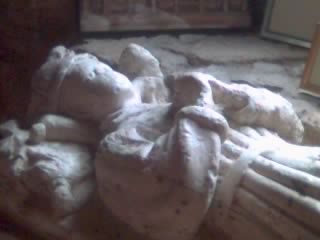The Westminster Abbey (where the boys' bones are now) won't allow the tests on the basis that it could create a precedent for testing unlimited number of historical theories on all the famous people buried in the Church. Another reason is the fear the results will prove the boys are not in fact the Princes; obviously, they are, the bones will be put back but what will they do if the remains are of unknown people?
Why the Queen never gave her permission is not known but the Monarch's consent is required for any testing of any interred Royal (or suspected royal, as it were).
That's a pity.
I don't understand the attitude however. Surely it's important to know, if possible,
who is actually buried where. That IMO should go before disturbing the peace of the grave.
And I cannot imagine in our time that it would deminish the importance of the cathedral, should the remains turn out to
not being that of the two Princes.
They would simply be reburied as unknowns then, with all due respect, I would imagine.
QMII gave her consent to exhume and examine the remains of a skeleton found under the floor of a church (in Jellinge to exact), some years ago. The remains were presumed to be that of King Gorm the Old, and the investigations confirmed that the person fitted the physical and age description of the king and also that he was in all likelihood buried in 958. Again fitting the contemporary information.
So he was reburied and the body is now officially considered to be that of the first in the line of Danish kings. (Which is not entirely correct, as there were kings of all of Denmark, or parts of it, depending on the political situation at the time,
before King Gorm the Old).
QMII did not submit DNA for testing, and the technique wasn't that developed then anyway, I presume.
That would have been interesting as QMII is claimed to belong to the same (extended) family as Gorm the Old.




